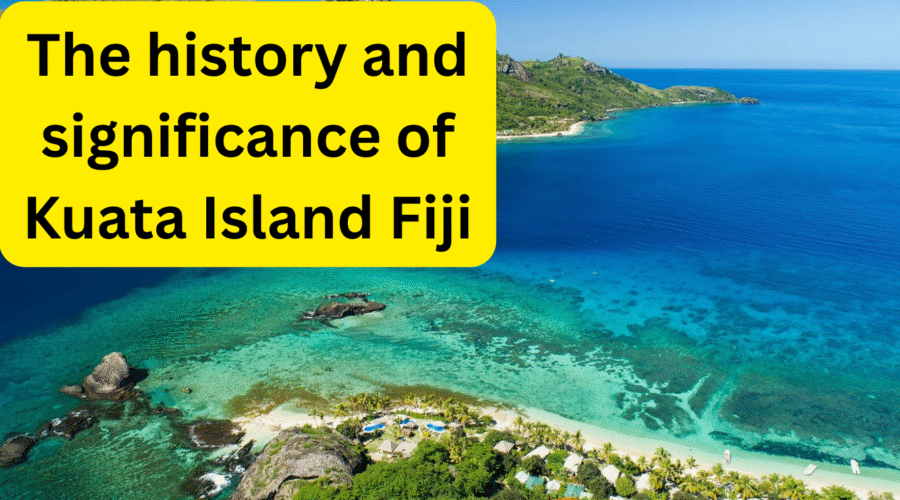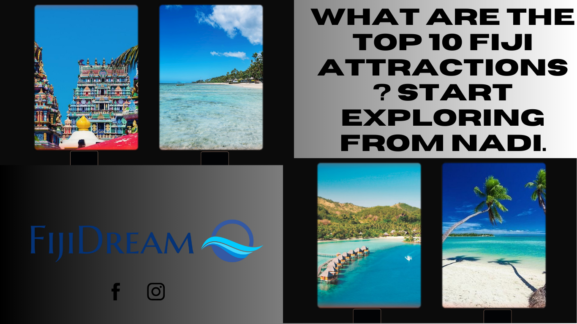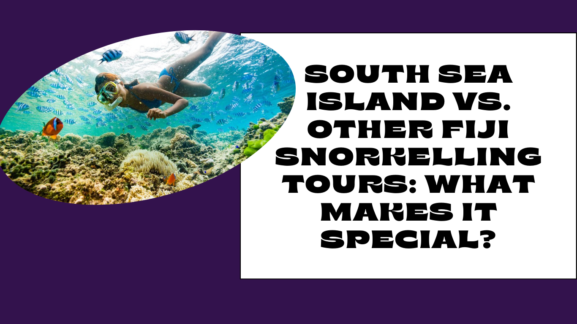The history and significance of Kuata Island Fiji
Most people who’ve been to Kuata Island Fiji can’t stop talking about the sharks. And yeah, it’s true—the chance to get in the water with those incredible animals is a huge draw. The sunsets really are that good, too, the kind you feel you have to post about. But here’s the thing: many visitors only realize once they’re there that the adventure stuff is just the surface. The island’s true significance lies in something much older. There’s a history here that you can sense, a mix of local legend, stories from the colonial days, and a deep cultural roots system that was growing for centuries before tourism was ever a thought. This island doesn’t just have a history; it feels historical.
Kuata’s story is closely tied to the Yasawa Islands surrounding it. In contrast to the larger Fijian islands, they are rougher, more untamed, and appear to have been roasted in the sun for a millennium. These islands were left alone for a very long period, with little population living by their own laws and doing as they pleased. It was no chance that Kuata Island, with its insane cliffs, was chosen as a resort. It was a natural fortress. It offered protection. Long before it was a destination for travellers, it was a stronghold for its people.
The Legendary Foundations
Before written records, there was oral tradition. Vosa (words) and sere (songs) are used to transmit Fiji’s history, and Kuata is based on a potent origin myth. The name “Yasawa” says it all. According to legend, lost Tongan warriors believed they’d discovered the afterlife when they first saw these islands. They weren’t just visiting—they thought they’d reached heaven itself. They named it “Yasawa”—heaven. It’s not hard to understand why. That sense of stumbling upon paradise never really leaves you here.
The stories become a bit more gritty for Kuata in particular, as they are anchored in the ground. Local tales are about great navigators and fighters who were able to read the weather and seas, not about distant gods. When you stand on Kuata’s cliffs, you immediately get it. That high summit isn’t just for a great photo op. You can almost feel the presence of those ancient lookouts who once scanned the horizon for rival canoes or storm clouds, not ferry schedules. This isn’t just old folklore. It’s the real, foundational identity of the island, a kind of inherited memory that values strength, resilience, and a profound connection to the sea.
The old stories are the original guidelines for living in that reality; they are more than just stories.
The Colonial Interlude and a Shift in Fortune of Kuata Island Fiji
The advent of European explorers permanently destroyed the peaceful seclusion of Kuata Island Fiji. Long-term contact with the Yasawas came later, although Captain Bligh of the HMS Bounty is renowned for being the first European to see them during his frantic open-boat expedition following the mutiny in 1789.
The triple powers of missionaries, whalers, and sandalwood dealers arrived in the 19th century. The coveted sandalwood was largely found on Vanua Levu, but the Yasawa islands, including Kuata, became waypoints and sources of fresh water and food. This era introduced new materials, new religions, and, unfortunately, new conflicts and diseases to which the indigenous population had no immunity.
Later, under British colonial rule, the Yasawas were largely left to their own devices. The colonial economy was focused on sugar plantations and infrastructure on the main islands. For Kuata, the outside world felt far away—and that distance protected them. Fiji maintained its traditional customs while modernizing. This was about preserving something authentic, not about falling behind. While everything else seemed to change, life here remained loyal to its own tale, unaltered.
The Modern Era: From Obscurity to Adventure Capital
Kuata’s big break came when tourists started looking beyond Fiji’s main resorts. For a long time, the Yasawas were just too hard to get to—until regular boat services started running in the 80s and 90s.
Being one of the first islands visitors would reach, Kuata was perfectly positioned. Someone had the bright idea to open a no-frills resort that actually felt like Fiji, not some international hotel chain. Thus, Barefoot Kuata was born—basic, affordable, and real.
But the real magic was in the water. Locals had always known about the sharks patrolling the reefs. Some smart soul realized visitors would actually pay to see them. So, they set up safe shark dives and snorkels—and suddenly Kuata wasn’t just another pretty island anymore.
The island’s economy changed very immediately. Where people used to just depend on farming and fishing, tourism now generates revenue and jobs. Those sharks turned out to be worth more alive than anyone could have imagined—and gave everyone a reason to keep the marine environment healthy.
Cultural Significance and the Spirit of Vanua
Beyond economics and history, the deepest significance of Kuata Island Fiji lies in its cultural heart. This is the realm of vanua. Vanua is hard to put into words. It’s not something you study—it’s something you live. It’s the feeling that the land and the people are one. You don’t define it. You sense it.
On Kuata, that feeling is unmistakable. When a stranger says “bula,” you get the impression that they have been anticipating your arrival. It may be heard in the melodies that recount tales older than memory and rise and fall like the waves. It’s in the flavor of lovo—slow-cooked cuisine that tastes of shared history and smoke. It has a flavor that you were unaware you had been lacking.
Some places on the island hum with a kind of quiet. You don’t need a sign to know they matter. You just know. Quiet. Older. You get the sense you should tread lightly. And the sharks? People here don’t just protect them for the tourists. They respect them. The ocean isn’t something you take from—it’s something you belong to. That’s the thing about Kuata Island. You don’t just visit. You slip into its rhythm. And it changes you a little before you leave.
Kuata’s Place in the Fiji of Tomorrow
These days, Kuata means different things to different people. For locals, it’s jobs. For marine life, it’s protection. For travellers, it’s raw Fijian culture minus the postcards. The island found a way to support tourism without sacrificing its essence.
That does not imply that it is simple. Problems like garbage, water usage, and pressure to modernize. increase with the number of people. But Kuata’s been through bigger changes. The same toughness that kept this place alive through isolation now helps it balance growth and roots.
Plenty of islands offer snorkeling or hammocks. Kuata Island Fiji offers something else: a sense of place that doesn’t fade when you board the ferry home. It’s not perfect—it’s real. And that’s what stays with you.



